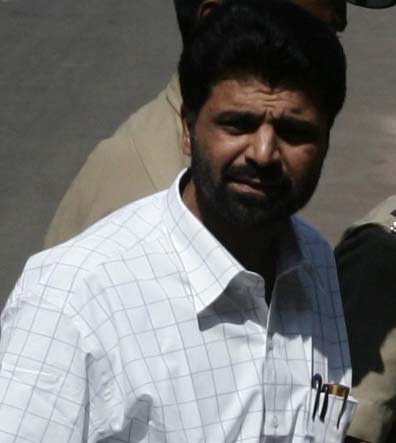
Yakub Memon, convicted for the 1993 terror attacks in India’s western metropolis Mumbai that killed more than 250 people, was hanged early Thursday morning.
Memon was executed on his 53rd birthday at a prison near Nagpur, about 14 hours from Mumbai, following the rejection of a last-ditch mercy plea from his lawyers for a 14-day stay on his execution so he could prepare for death and say goodbye to his family.
The plea, which was heard by a bench of three Supreme Court judges at around 3 a.m., was rejected on the grounds that suspending his death warrant even temporarily would be a “travesty of justice.”
Memon had two petitions for clemency rejected earlier on Wednesday by the governor of the state of Maharashtra (of which Mumbai is the capital) and the President of India respectively, Reuters reported. The judges ruled that he was not entitled to the two-week buffer between the rejection of a mercy plea and an execution, mandated by Indian law, because he had received “ample opportunity” to challenge the verdict.
Found guilty of being the “driving spirit” behind the 1993 blasts, Memon was sentenced to death by a special anti-terror court in Mumbai in July 2007. His death sentence was upheld in 2013 by the Supreme Court, following which Indian President Pranab Mukherjee rejected his initial mercy petition in April 2014. His lawyers also filed a curative petition that was rejected by the country’s apex court last week.
Memon’s execution is the third since India resumed capital punishment in 2012 after an unofficial eight-year moratorium. The country hanged Ajmal Kasab — the only terrorist captured alive from the Mumbai attacks of 2008 — in November that year, followed by the hanging of Afzal Guru — alleged mastermind of the 2001 attacks on the Indian Parliament — in February 2013.
Thursday’s hanging, which brings one of India’s most high-profile and long drawn-out legal cases to a close, has significantly divided opinion across the country as it grapples with a debate over the merits of keeping the death penalty. While a majority of the general public supported Memon’s killing, many say it was not justified given that he allegedly surrendered himself in 1994 (a fact that is still disputed) and cooperated with Indian intelligence authorities by providing details about the blasts.
Although he reportedly financed and helped plan the attacks, his brother Tiger Memon and Mumbai mafioso Dawood Ibrahim are considered to be the masterminds behind them. The two men remain in hiding.
“This morning, the Indian government essentially killed a man in cold blood to show that killing is wrong,” Aakar Patel, the executive director of Amnesty International India, told the Indian Express newspaper. “It is a misguided attempt to prevent terrorism, and a disappointing use of the criminal justice system as a tool for retribution.”
Memon’s body is due to be flown to Mumbai later on Thursday, where it will be given to his family for a burial.
“This is not the right decision,” Memon’s lawyer, Anand Grover, said after his client’s final plea was rejected and the execution was announced. “I am very disappointed and unhappy as I think the Supreme Court has made a tragic mistake.”
More Must-Reads from TIME
- Why Trump’s Message Worked on Latino Men
- What Trump’s Win Could Mean for Housing
- The 100 Must-Read Books of 2024
- Sleep Doctors Share the 1 Tip That’s Changed Their Lives
- Column: Let’s Bring Back Romance
- What It’s Like to Have Long COVID As a Kid
- FX’s Say Nothing Is the Must-Watch Political Thriller of 2024
- Merle Bombardieri Is Helping People Make the Baby Decision
Write to Rishi Iyengar at rishi.iyengar@timeasia.com